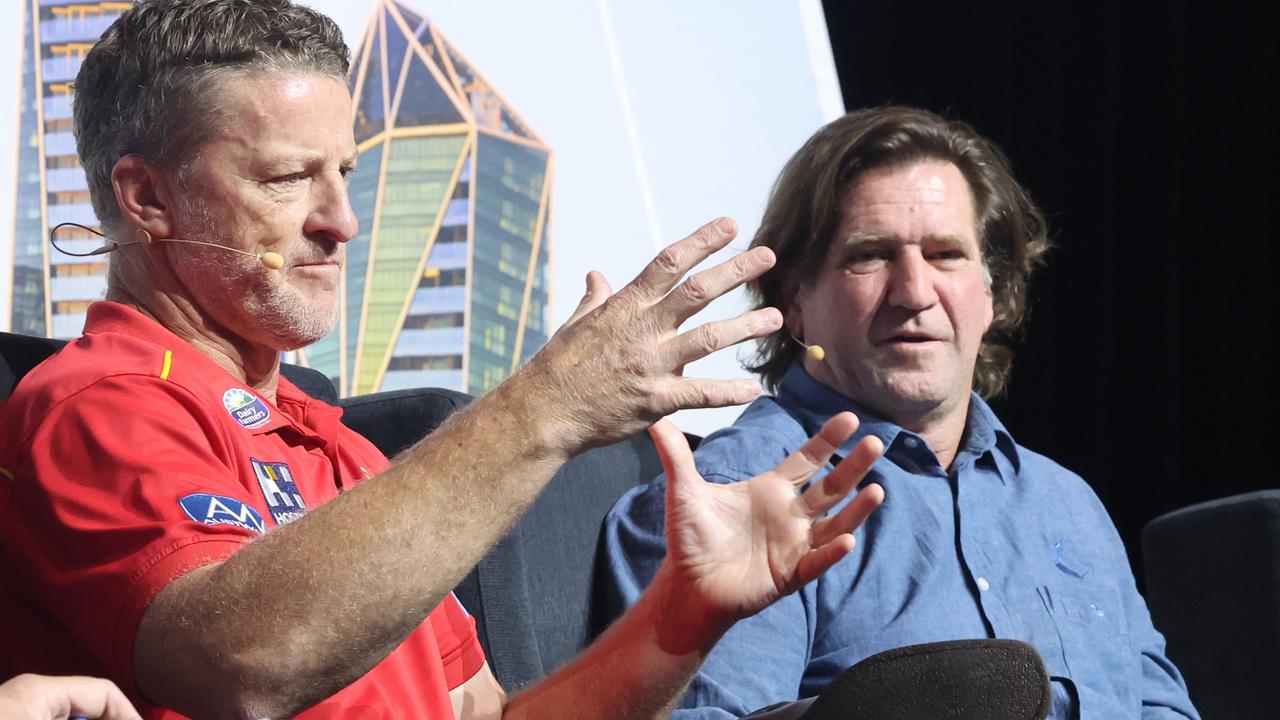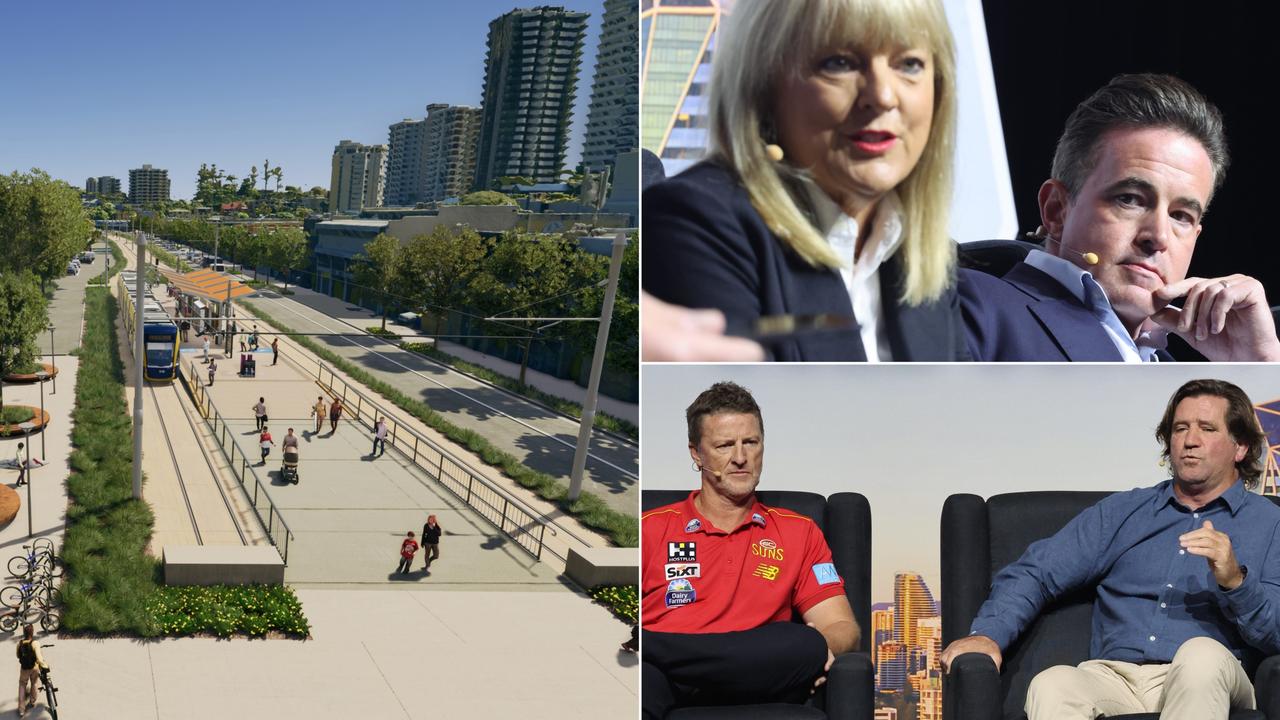2032 Olympic Games: Everything you need to know about Brisbane and Gold Coast Games
Job numbers in some of the Gold Coast’s biggest industries will explode in the next three years, a new report reveals. But one is set to shrink in a major fashion.
Future Gold Coast
Don't miss out on the headlines from Future Gold Coast. Followed categories will be added to My News.
JOB numbers in some of the Gold Coast’s biggest industries will explode within three years, a new report reveals.
Employment in the education and training, healthcare and accommodation fields are each forecast to increase by more than 20 per cent, according to National Skills Commission data featured in the latest Reimagine Gold Coast report.
Around 47,000 new jobs are expected to be created in the city by 2024. However, in a surprise twist, the Gold Coast’s second-biggest industry is projected to lose jobs.

Real estate, hiring and rental services are expected to lose 600 jobs collectively and shrink by 7.1 per cent, despite the Coast experiencing the biggest property boom in more than 30 years.
Information media, telecommunications, mining and agriculture are also expected to recede.
Urbis director Kate Meyrick said the Gold Coast was on track to recover faster than other locations from the effects of Covid-19.
“ (Covid) has created talent shortfalls across a variety of industries and as economic growth changes across sectors, the problem is going to become more acute and place an emphasis on the question of how to compete for talent and what the talent ecosystem looks like,” she wrote in the report.
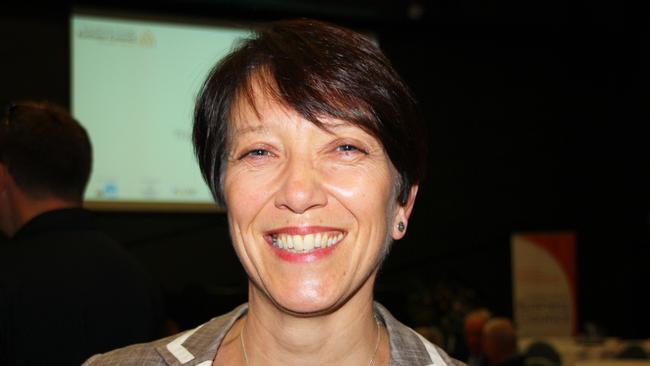
“Small to medium cities like the Gold Coast, with enviable lifestyle qualities, are best positioned to recover rapidly.
“Therefore, it can gain a natural advantage if it can get its act together to make sure the basic platforms required to compete and win effectively, economically and socially are in place. Talent (is) arguably the most important of those.
It comes ahead of Thursday’s Future Gold Coast forum.
Almost 300 of the city’s movers and shakers will gather at Oxenford’s Australian Outback Spectacular to share and discuss opportunities presented by co-hosting the 2032 Olympic Games.
Among the keynote speakers are Olympics marketing guru Michael Payne, and Tokyo Olympic and Paralympic champions Logan Martin and Curtis McGrath.
Inside story: How the Coast can avoid an Olympic disaster
THE Gold Coast has an enormous opportunity to lure any new audience it desires as the Olympic spotlight begins to turn on the tourism mecca.
But it must pick one – and go for it.
Michael Payne has been a marketing brain at the past 20 summer and Winter Olympics and is widely recognised for helping to save the Games brand following the hugely successful Los Angeles bonanza in 1984.
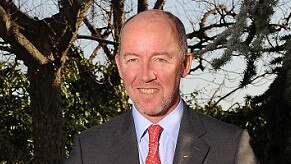
He remembers the commercial wins of Barcelona in 1992 and Sydney in 2000, and the flops that cast a shadow on Montreal in 1976, Athens in 2004 and Rio in 2016.
Speaking this week from Hungary as part of the Bulletin’s Future Gold Coast, Mr Payne revealed the road map the Gold Coast must follow to ensure it succeeds as a co-host.
“Being on the world’s stage, it’s not just about hosting a sporting event,” he said. “The power of the Olympic Games is how it extends into the culture, geography and the whole experience of being a host.
“It is as much about what happens off the field of play as it is on and that is a unique thing, to be a shop window to the world.
“Rather than waiting for it to happen, you need to understand the power and the opportunity of it because it is the world’s largest sporting event by many magnitudes.”
PICK YOUR TARGET
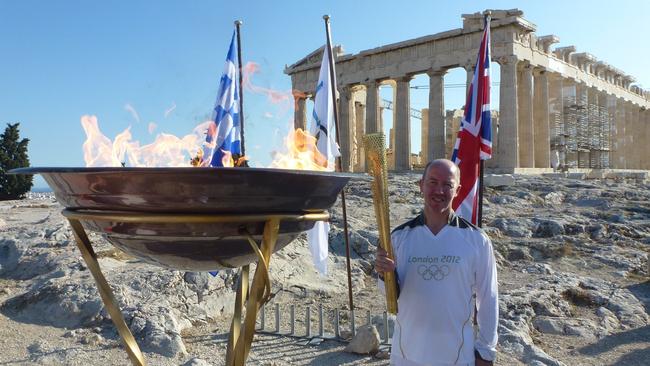
Winning the Olympic Games is great honour, but Mr Payne says one of the earliest decisions that needs to be made is what you want to achieve.
Having been a key marketing figure in the International Olympic Committee between 1983 and 2004, Mr Payne said having a clear vision helped shape an event’s – and city’s – legacy.
“Look at a recent Games like London – there is no way East London would have been developed the way it was without the Games,” he said.
“For Barcelona – it was a complete transformation of the city and a rebranding of it and its image.”
Beyond infrastructure, the Olympics had the potential to deliver a major marketing and tourism boon – but it required the host nation to carefully pick a target market.
“You need to have a real understanding of what your image is and what you want it to be tomorrow with your future target,” said Mr Payne, who will speak at the Future Gold Coast luncheon on December 2.
“With London, they were fairly specific about targeting South America for tourism and hosting the Games opened up a huge new discussion about tourism with that location as well as China.
“With Barcelona, it was ranked No. 20 as a convention city in Europe but within two years of the Games it was No. 3 and it held that for two decades.”
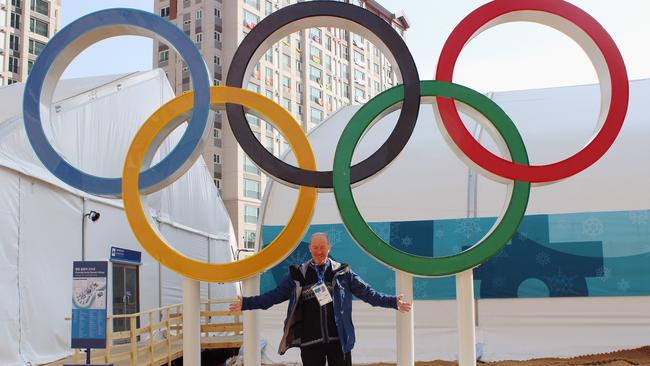
Mr Payne said organisers of the Sydney 2000 Games delivered significant results.
“The mere fact that Sydney won the right to host the Olympic Games helped Australian destinations capture the ear of convention organisers.
“The Australian Tourist Commission’s goal was to make the Olympics a two-week documentary on Australia for the global TV audience of 4 billion, creating a lasting legacy for their industry.”
Mr Payne, who still serves as an Adviser to the IOC and recently returned from the delayed Tokyo Games, said success would be born from strong preparations.
“You need to ask how much is tourism, what is the current market and what do you want it to be?
“Then ask how do you change it and use the journey to get that result.”
BUILDING BLOCKS
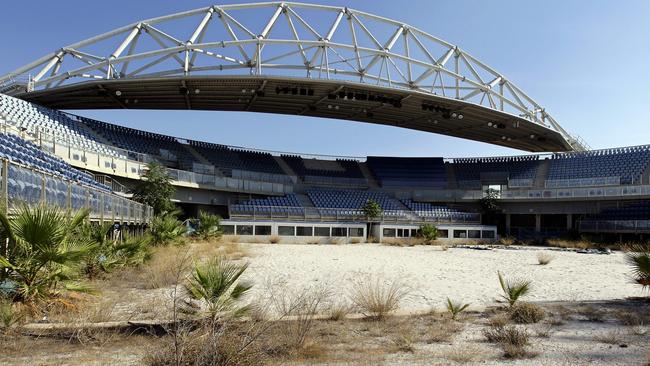
Mr Payne is not trying to be smart when he says the Olympic Games are more than sport.
It is an obvious point but simple in its reality and effect.
The infrastructure needed to support the Games was just as important as the on-field action, he said.
The 63-year-old said South East Queensland leaders needed to decide early on what they wanted to build and to focus only on venues and infrastructure that would provide long-term benefits.
“They need to think about how they use the hosting (opportunity) to serve the community, to serve the nation, and to make sure it has a real long-term legacy with no white elephants.
“Honestly, in the current Olympic bidding process, there is zero need to build any white elephants.
“The decision-making process should be really robust and make sure they do not waste the event.
“Particularly with transport infrastructure, there needs to be a strong vision of what they want.”
FIGHTING DEADLINES
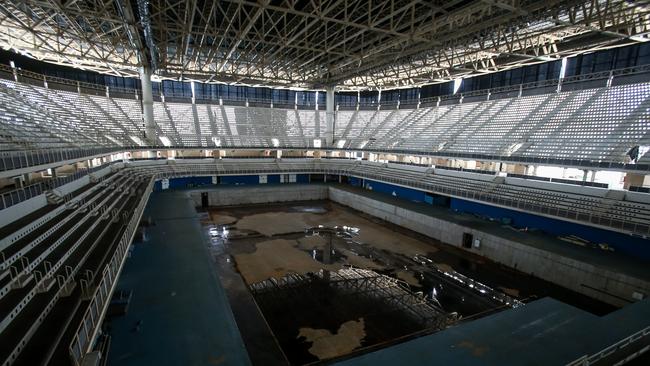
Having a hard deadline can be both a blessing and a curse, Mr Payne says.
“The problem with the Olympics is that it is a non-negotiable deadline whether you are ready or not and that’s fairly rare when it comes to politicians,” he said.
“They need to use the decade leading up to the Games effectively (rather than leave it until the last minute) because there will always be surprises.
“Budgets have a habit of blowing out if there is a last-minute scramble and, famously, Montreal got so far behind in building its facilities that workers were paid triple time on 24-hour shifts to get things finished.”
Mr Payne said he strongly supported the construction of temporary facilities for Games venues which he said made financial sense and ensured deadlines were met.
“Some of the best facilities in London were temporary. If you put up a decent amount of banners outside, nobody is the wiser.
“No politician needs to go off on an ego trip over this because it is not necessary.”
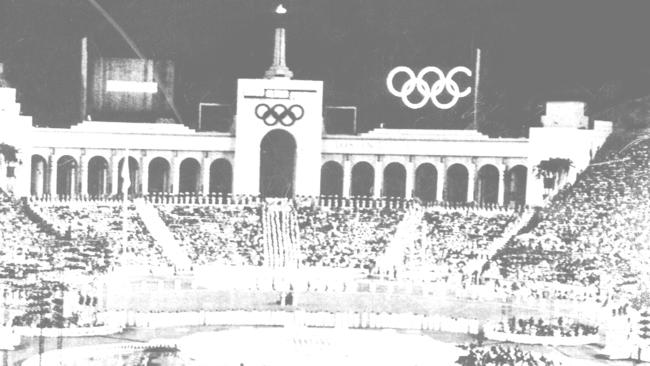
The 1984 Los Angeles Games, Mr Payne’s first, were hailed with reviving the Olympic brand following the difficulties of Munich, Montreal and Moscow between 1972 and 1980.
The event was a major financial success and saved money by re-using existing infrastructure such as Los Angeles Memorial Coliseum rather than build new stadiums.
“Although working with a limited budget, in 1984 Peter Ueberroth and his team in Los Angeles had already identified the potential of venue presentation to raise the Olympic bar,” Mr Payne wrote in his book Olympic Turnaround.
“They developed a visual presentation for their venues that differentiated them from all previous Games.
“They used an unusual combination of colours, including magenta, vermilion chrome, vivid green and aqua. This colour palate became known as ‘festive federalism’.
“The eclectic mix of colours had Ueberroth claiming to be colour blind, but it worked.”
Michael Payne’s biggest lessons from past Olympic Games
OLYMPIC Games guru Michael Payne says the Gold Coast can learn lessons from past Games.
From positive to negative, these are the past Games southeast Queensland must keep in mind ahead of 2032.
1976 - MONTREAL
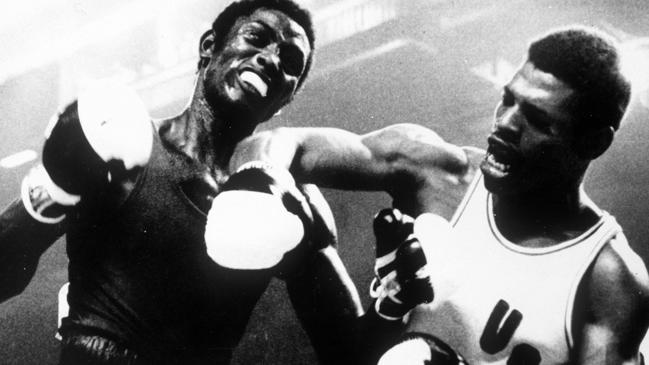
A financial disaster with budget blowouts of 720 per cent. However, the biggest blunder was the fail to build the world’s largest airport, Montreal Mirabel Airport, and not support it with any form of major transport.
Mr Payne said: “Montreal was a long time ago now but its key insight is about spending and planning. It wasn’t the sports infrastructure which was the major problem, it was their mayor who went on a massive capital works program and built a new airport which didn’t have any access road to the city.
“That spending spree was all building things outside of the Olympic remit and they used (the Games) as an excuse.”
The airport never got close to projected passenger numbers and its terminal was demolished in 2016.
2000 - SYDNEY
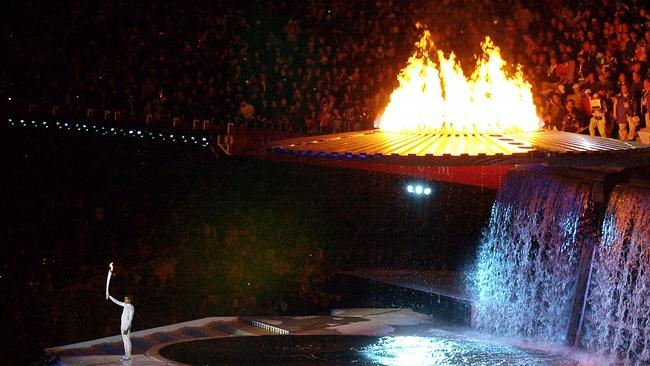
Sydney’s hosting of the Games remains the benchmark. Mr Payne said it had changed the way the Olympics could benefit a destination.
“It was more than 20 years ago that Sydney wrote the rule book on marketing,” he said.
“I would argue Tourism Australia really pioneered how to use the Olympic Games as a real business strategy.
“They didn’t have millions to promote the Games but the sponsors and telecasters did, so they used that to showcase the country.
“You just had to look at the TV advertisements to see Visa talking about the magic of going to the country of the Games, not just for the 100m.
“You couldn’t dream of that kind of publicity.”
2004 – ATHENS
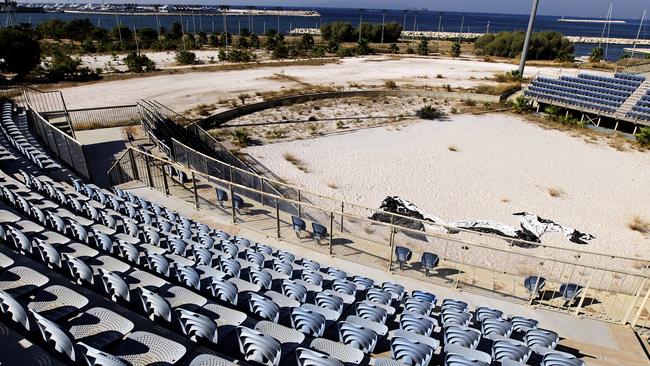
The Athens Games has long been regarded as the poster child for cost overruns and a high-spending event that drowned the historic home of the Olympics in significant debt.
But Mr Payne says he believes the Greek Games get a bad rap.
“Athens is an unfair example (of a poorly planned and too-expensive Games),” he said.
“With that Games, (Greek officials) used the Games to rebuild a city which had no capital development for 100 years and 90 per cent of what they did was great.
“That said, they shouldn’t have built a bloody baseball stadium – that was a textbook example of something which should be temporary.”
He said baseball was not a popular sport in Europe. The stadium remains but is a white elephant, rarely used.


